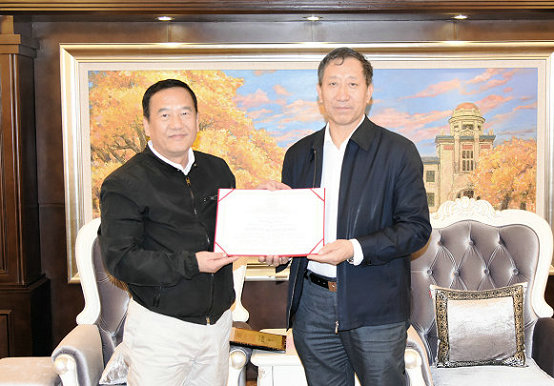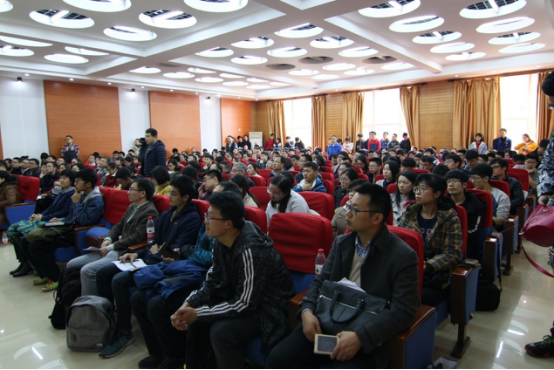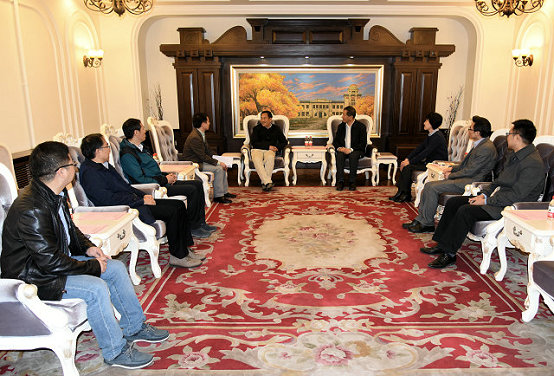Reported by: Wang Ji
Translated by: Qiao Xuechao
Edited by: D. Parker
Time: 2017/10/27
On October 24th, 2017 Wang Xiaodong, academician from the U.S. National Academy of Sciences, and a foreign member of the Chinese Academy of Sciences, and senior scientist from the National Institute of Biological Sciences visited HIT. Wang Xiadong is also the chair of biochemistry and professor of Southwestern Medical Center at the University of Texas. Professor Wang addressed HIT faculty and students on programmed cell death pathway and its therapeutic significance. The president of HIT, Zhou Yu held a reception with Professor Wang and issued a letter of appointment as keynote speaker of the “Scientist Forum” and a member of Bioscience Center Scientific Steering Committee.
In his report, Professor Wang gave a definitive explanation on the molecular mechanism and discovery process of necrocytosis caused by protein kinase RIP3 and its substrate molecule MLKL. He shared the latest research achievements on the significant role of RIP3-MLKL mediated male reproductive system cells’ necrotic apoptosis in the promotion of male reproductive organ’s senility. The findings achieved by Professor Wang’s laboratory will provide significant guidance for future research regarding male diseases caused by senility. Professor. Wang’s report blended humor and precise logic to the enjoyment of those in attendance. He also answered questions presented by faculty members and students. Professor Wang concluded his presentation sharing his experience in scientific research. He encouraged students that the road of scientific research is never a linear path. With a curious spirit and specialization in the divisions of science, they can contribute creative achievements, even becoming trailblazers in totally new directions.

Issuing letter of appointment

Seminar site

Reception


